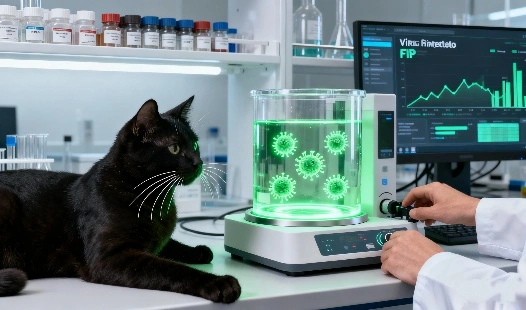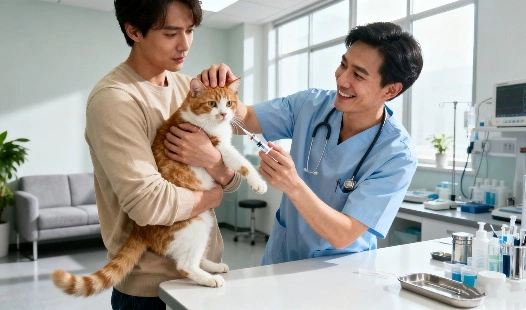Feline Infectious Peritonitis (FIP) is a devastating and often fatal disease that affects cats around the world. It is caused by a mutated form of the feline coronavirus, which can trigger a severe immune response and lead to widespread inflammation in multiple organ systems. FIP can profoundly impact a cat's overall health, daily functioning, and quality of life, making early recognition and careful management critical. In this comprehensive guide, we will examine the various organ systems commonly affected by FIP, outline strategies for alleviating symptoms, and provide insights into monitoring disease progression. Additionally, we will discuss long-term prognosis and offer practical recommendations for providing effective and compassionate GS-441524 FIP care, helping cat owners support their pets through this challenging condition.
Organ Systems Affected: A Comprehensive Overview
FIP is a multisystemic disease, meaning it can affect multiple organ systems throughout a cat's body. Understanding how FIP impacts these systems is crucial for effective FIP care and management.
Immune System
The immune system is the primary target of the FIP virus. The virus causes an overactive immune response, leading to widespread inflammation throughout the body. This immune dysregulation is at the core of FIP's pathology and contributes to the damage seen in other organ systems.
Abdominal Cavity
In the wet form of FIP, fluid accumulates in the abdominal cavity, causing distension and discomfort. This effusion is rich in inflammatory proteins and can severely impact a cat's mobility and quality of life.
Central Nervous System
Neurological FIP can affect the brain and spinal cord, leading to a range of symptoms including seizures, ataxia, and behavioral changes. The inflammation in the central nervous system can cause significant and often irreversible damage if left untreated.
Ocular System
FIP can cause uveitis, an inflammation of the eye's interior structures. This can lead to changes in eye color, vision problems, and in severe cases, blindness.
Cardiovascular System
The heart and blood vessels can be affected by FIP, leading to pericardial effusion (fluid around the heart) and vasculitis (inflammation of blood vessels). These complications can seriously impact cardiac function and overall circulation.
Quality of Life: Managing FIP Symptoms
While FIP was once considered a death sentence for cats, recent advancements in treatment options have dramatically improved the outlook for affected felines. Managing symptoms and maintaining quality of life is a crucial aspect of FIP care.
Antiviral Therapy
The introduction of antiviral medications, particularly GS-441524, has revolutionized FIP treatment. This nucleoside analog has shown remarkable efficacy in treating FIP, often leading to complete remission of symptoms when administered properly.
Supportive Care
In addition to antiviral therapy, supportive care is essential for managing FIP symptoms. This may include:
- Fluid therapy to maintain hydration
- Nutritional support to prevent weight loss
- Anti-inflammatory medications to reduce discomfort
- Regular monitoring of blood work and clinical signs
Environmental Modifications
Creating a stress-free environment is crucial for cats undergoing FIP treatment. This may involve:
- Providing a quiet, comfortable space for rest
- Ensuring easy access to food, water, and litter boxes
- Minimizing changes to the cat's routine
- Offering gentle interaction and affection as tolerated
Long-term Prognosis: What to Expect?
The long-term prognosis for cats with FIP has improved dramatically with the advent of effective antiviral treatments. However, several factors can influence the outcome.
Early Diagnosis and Treatment
Early detection and initiation of treatment are crucial for a positive outcome. Cats that receive prompt treatment with antivirals like GS-441524 have a significantly higher chance of achieving remission and long-term survival.
Treatment Duration
The standard treatment protocol for FIP typically lasts 12 weeks, although some cases may require longer treatment periods. Adhering to the full treatment course is essential for preventing relapse and ensuring the best possible outcome.
Monitoring and Follow-up
Regular veterinary check-ups and blood work are crucial during and after treatment to monitor for signs of relapse or complications. Many cats that achieve remission go on to live normal, healthy lives, but ongoing vigilance is important.
Potential for Relapse
While the majority of cats treated with antivirals achieve long-term remission, there is a small risk of relapse. Prompt recognition of recurring symptoms and reinitiation of treatment can often lead to successful management of these cases.
Conclusion
The impact of Feline Infectious Peritonitis (FIP) on a cat's health can be profound, as the disease affects multiple organ systems and can lead to significant changes in a cat's overall quality of life. Symptoms may vary depending on whether the wet or dry form of FIP develops, but common manifestations include fluid accumulation, organ inflammation, weight loss, and lethargy. Despite the historically poor prognosis associated with this condition, recent advancements in antiviral therapies, such as GS-441524, combined with improved supportive care strategies, have dramatically enhanced outcomes. Early and accurate diagnosis, timely administration of effective medications, and ongoing veterinary monitoring are essential. By implementing these approaches, cat owners can maximize their pet's chances of recovery and provide compassionate, comprehensive care, ensuring a better quality of life even in the face of this once-devastating disease.
FAQ
1. Q: Can FIP be prevented?
A: While there is no guaranteed way to prevent FIP, maintaining good hygiene, reducing stress, and avoiding overcrowding in multi-cat households can help reduce the risk of coronavirus infection and mutation.
2. Q: How is FIP diagnosed?
A: Diagnosing FIP can be challenging and typically involves a combination of clinical signs, blood tests, imaging studies, and sometimes analysis of effusion fluid or tissue biopsies.
3. Q: Is FIP contagious to other cats or humans?
A: The mutated form of the virus that causes FIP is not directly contagious. However, the underlying feline coronavirus can spread between cats. FIP is not transmissible to humans or other animal species.
The importance of high-quality GS-441524 in FIP management is something we at BLOOM TECH well grasp. Produced in accordance with GMP guidelines, our pharmaceutical-grade product maintains its potency and purity throughout production. Veterinarians looking to provide their feline patients the finest treatment possible may rely on our dependable supply of GS-441524, made possible by our long history of organic synthesis and unwavering dedication to quality. Discover how BLOOM TECH revolutionises FIP management. Contact us at Sales@bloomtechz.com to find out more about the services we provide and how our GS-441524 manufacturer may help your vet clinic.
References
1. Pedersen, N.C. (2019). "Feline Infectious Peritonitis: A Review of Current Understanding and Management." Journal of Feline Medicine and Surgery, 21(4), 351-364.
2. Addie, D., et al. (2020). "Feline Infectious Peritonitis. ABCD guidelines on prevention and management." Journal of Feline Medicine and Surgery, 22(11), 1044-1062.
3. Murphy, B.G., et al. (2018). "The nucleoside analog GS-441524 strongly inhibits feline infectious peritonitis (FIP) virus in tissue culture and experimental cat infection studies." Veterinary Microbiology, 219, 226-233.
4. Tasker, S. (2018). "Diagnosis of feline infectious peritonitis: Update on evidence supporting available tests." Journal of Feline Medicine and Surgery, 20(3), 228-243.











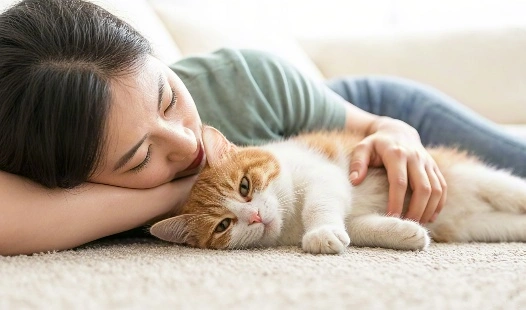
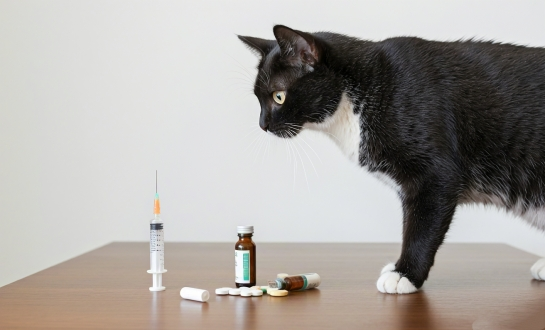
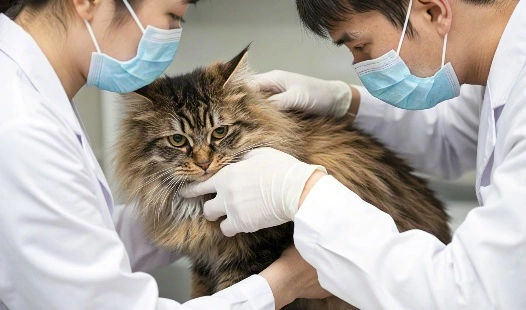
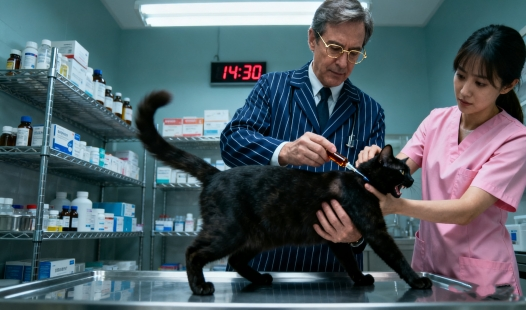
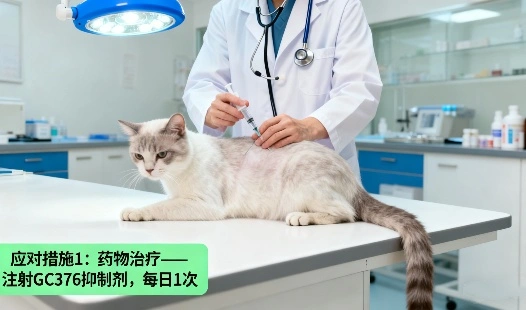

_副本_1758248142309.webp)
